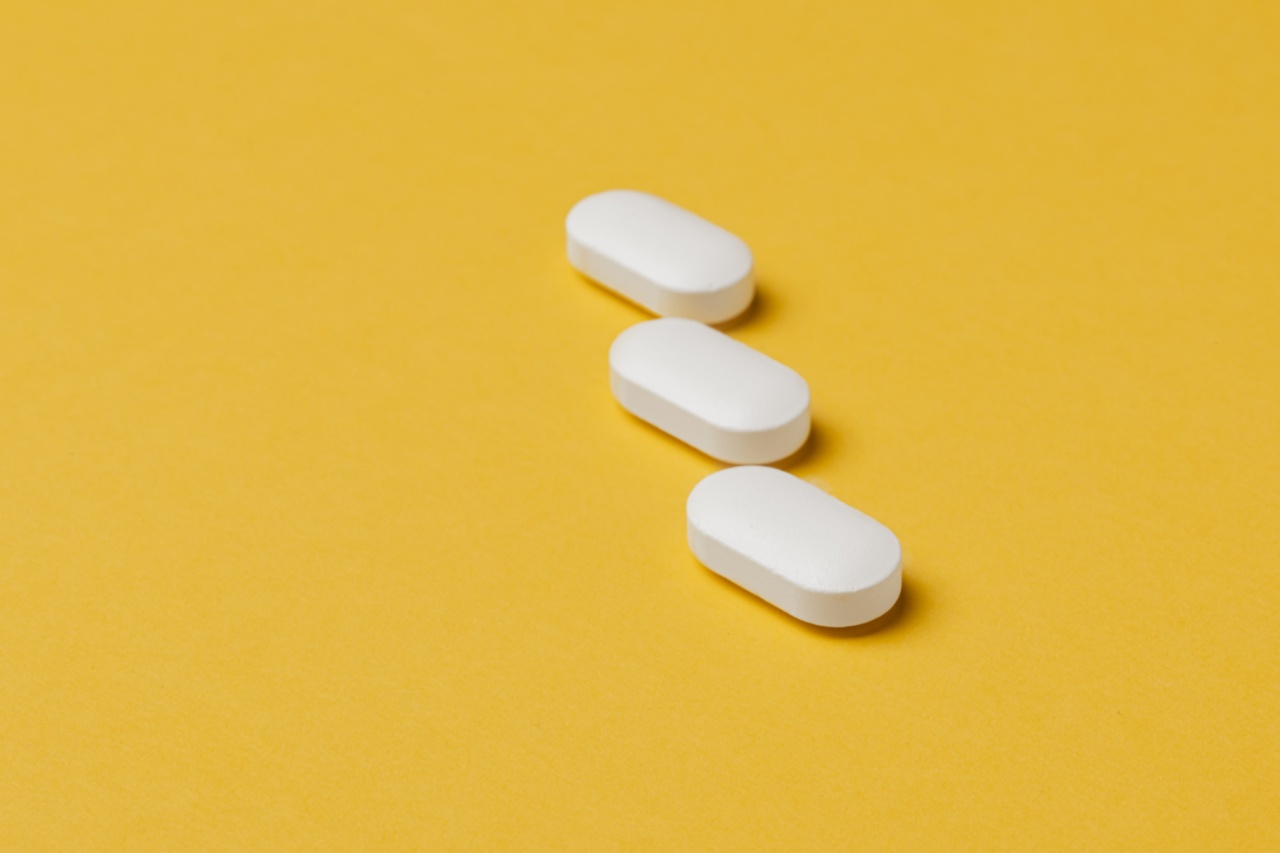Hearing loss is a common condition that affects millions of people worldwide. It can be caused by various factors, including age, exposure to loud noises, genetics, and certain medical conditions.
While it may not always be possible to prevent hearing loss completely, there are steps you can take to protect and maintain your hearing health. One such step is incorporating a simple vitamin supplement into your daily routine.
Understanding the Link between Nutrition and Hearing Health
Research has shown that there is a clear connection between nutrition and overall health, including hearing health. Nutrient deficiencies can have a negative impact on the auditory system, leading to an increased risk of hearing loss.
By addressing nutritional imbalances and ensuring adequate intake of essential vitamins and minerals, you can potentially reduce the risk of hearing loss and promote better auditory function.
The Role of Vitamins in Preventing Hearing Loss
Several vitamins have been found to play a crucial role in maintaining proper hearing health. Let’s explore some of the key vitamins that can help prevent hearing loss:.
Vitamin A
Vitamin A is an essential nutrient for the proper functioning of the inner ear. It helps in the production of a protein called rhodopsin, which is crucial for low-light and night vision.
Additionally, vitamin A supports the maintenance of the mucous membranes lining the inner ear, protecting it from infections and other damage that could lead to hearing loss.
Vitamin C
Vitamin C is well-known for its immune-boosting properties, but it also plays a role in preserving hearing health. It is a powerful antioxidant that helps protect the delicate structures of the inner ear from oxidative stress caused by free radicals.
Higher vitamin C intake has been associated with a lower risk of age-related hearing loss.
Vitamin E
Vitamin E is another potent antioxidant that helps protect the delicate cells of the inner ear from oxidative damage. It also improves circulation, ensuring that the structures of the ear receive adequate blood supply and nutrients for optimal function.
Studies have shown that vitamin E supplementation can help prevent age-related hearing loss.
Vitamin D
Vitamin D deficiency has been linked to various health problems, including hearing loss. It plays a role in reducing inflammation and regulating immune function, which are crucial for maintaining a healthy auditory system.
Ensuring adequate vitamin D levels can help reduce the risk of certain types of hearing loss.
Omega-3 Fatty Acids
Omega-3 fatty acids, particularly docosahexaenoic acid (DHA), are essential for brain health and may also have protective effects on the auditory system.
Studies have suggested that omega-3 supplementation can help improve hearing and reduce the risk of age-related hearing loss.
Zinc
Zinc is a mineral that plays a vital role in various bodily functions, including hearing. It is involved in the metabolism of proteins and DNA repair, both of which are essential for maintaining healthy auditory function.
Zinc supplementation has shown promising results in preventing and treating noise-induced hearing loss.
Selenium
Selenium is an antioxidant mineral that helps protect against the damaging effects of oxidative stress. It also supports the proper functioning of the thyroid gland, which is crucial for regulating overall health, including hearing.
Studies have suggested that selenium supplementation can help reduce the risk of age-related hearing loss.
How to Incorporate Vitamin Supplements for Hearing Health
Before starting any new supplement regimen, it is essential to consult with a healthcare professional, especially if you have any underlying medical conditions or are taking medications that may interact with the supplements.
A healthcare provider can guide you on the appropriate dosage and help you determine any potential risks or side effects.
In addition to incorporating vitamin supplements, it’s important to maintain a balanced diet rich in fruits, vegetables, whole grains, and lean proteins.
A healthy diet provides a wide range of essential nutrients necessary for overall well-being, including hearing health.
Avoiding excessive noise exposure is another important way to protect your hearing. Continuous exposure to loud noises can cause irreparable damage to the ear structures, leading to permanent hearing loss.
Wearing ear protection or taking breaks from noisy environments can help reduce the risk of noise-induced hearing loss.
Other Strategies for Maintaining Hearing Health
In addition to incorporating vitamin supplements and practicing good lifestyle habits, there are several other strategies you can consider to maintain your hearing health:.
Regular Exercise
Engaging in regular exercise has been associated with better hearing health. Exercise improves blood flow, including to the structures of the ear, and promotes overall cardiovascular health, which is important for maintaining optimal auditory function.
Hearing Protection
When engaging in activities where loud noises are unavoidable, such as concerts or noisy work environments, it’s crucial to use appropriate hearing protection. Earplugs or earmuffs can significantly reduce the risk of noise-induced hearing loss.
Regular Hearing Tests
Regular hearing tests can help detect any changes or signs of hearing loss early on. Early detection allows for prompt intervention and management, which can help mitigate the impact of hearing loss.
Minimize Earwax Buildup
Excessive earwax buildup can lead to blockage and affect hearing. Gentle ear cleaning using non-invasive methods, such as a damp cloth, can help prevent the accumulation of earwax.
Avoid Ototoxic Medications
Some medications have been associated with hearing loss and can be detrimental to auditory health. If you are taking any medications, discuss potential side effects with your healthcare provider and explore alternatives if necessary.
Conclusion
Hearing loss is a prevalent condition, but by taking proactive steps, you can potentially reduce the risk and protect your hearing health.
Incorporating a simple vitamin supplement, such as vitamin A, vitamin C, vitamin E, vitamin D, omega-3 fatty acids, zinc, and selenium, can support the overall health of your auditory system. However, it is essential to consult with a healthcare professional before starting any dietary supplements.
Maintaining a healthy lifestyle, avoiding excessive noise exposure, and practicing other strategies for hearing health can further contribute to preserving your hearing abilities for years to come.




























